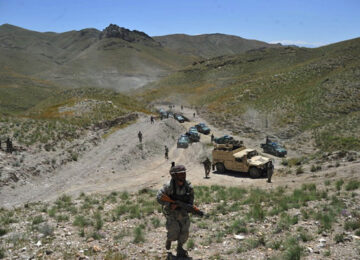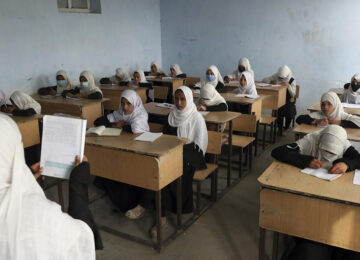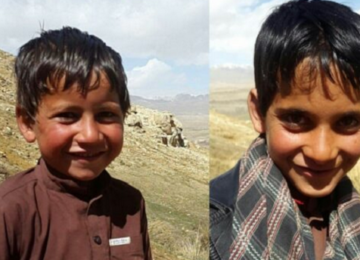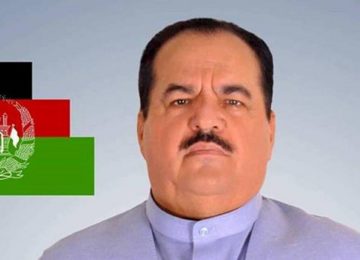As terror outfits continue to strengthen the reins of terror, taking advantage of the protracted Afghan war in the region, regional players are compelled to rethink the ongoing counter-terrorism measures and explore lasting solutions for the Afghan peace process.
Resumption of Pak-Afghan State Level Dialogue
Keeping in view the critical role of Pakistan in the Afghan peace process, an important development appears to be the recent resumption of state level dialogue between Pakistan and Afghanistan which resulted in the materialization of their first ever signed bilateral framework of cooperation – the Afghanistan Pakistan Action Plan for Peace and Solidarity (APAPPS), signed on May 14, 2018, in Islamabad. The agreement primarily followed from high level talks held between Pakistan’s Prime Minister Shahid Khaqan Abbasi and Afghan President Ashraf Ghani during PM Abbasi’s visit to Kabul in April this year.
As part of this framework, the two countries have formed five working groups for collaboration and cooperation in the areas of political/diplomatic, military to military, intelligence to intelligence, economic cooperation and refugees. The two leaders set APAPPS cooperation mechanisms as the basis to respond to mutual issues of contention and concerns from henceforth between the two countries. The framework has been particularly aimed at achieving increased communication among the various security organs of both countries to mitigate the mistrust that had existed for years and build mutual confidence.
Reaching this agreement was preceded by increased communication in the form of several exchange visits between the security officials of the two to improve cooperation in counter-terrorism and security matters. In 2017, Pakistan’s DG Inter-Services Intelligence (ISI), Chairman Joint Chiefs of Staff Committee (CJSC), and DG Military Operations (MO) visited Kabul in addition to the Chief of Army Staff accompanied by Pakistan’s Foreign Secretary in October 2017. On May 27, 2018, Afghanistan responded to these visits by sending a high level Afghan security delegation, headed by NSA Hanif Atmar, to Pakistan, where, on behalf of President Ghani, NSA Atmar extended an invitation to Pakistan’s COAS to visit Kabul. Accepting this invitation, Pakistan’s COAS visited Kabul again in June 2018.
Military and Intelligence Working Groups of APAPPS held their first meeting in Islamabad on 10-11 June, 2018 and on June 14, the news of the death of Pakistan’s most wanted militant, TTP chief Mullah Fazululla in a U.S. airstrike also emerged as a positive development. The two countries held the inaugural meeting of APAPPS as well as the meetings of the five Working Groups in Kabul on July 22.
As part of implementing the necessary cooperation mechanisms under APAPPS, the two sides also established Ground Coordination Centers (GCCs) and placed each other’s Liaison Officers in their respective capitals. In addition, officials were deployed at the two border crossing points of Torhkam and Chaman.
Ungoverned Spaces
A challenging element that has remained a hurdle in Pakistan and Afghanistan’s counter-terrorism drive has been the existence of ungoverned spaces in both countries which have served as breeding grounds for the recruitment and training of militants by non-state actors. As part of the efforts to reduce these spaces and establish effective government writ there, the Government of Pakistan, agreed on merging the Federally Administered Tribal Areas (FATA) with the province of Khyber Paktunkhwa by May 2019, in order to mainstream the region which has so far been beyond the confines of the Constitution of Pakistan.
Synchronization of Policies
To increase the impetus of their counter-terrorism strategy, there is also a need for both Afghanistan and Pakistan to synchronize their policies and actions against their common enemies. To this end, it is important to investigate whether terrorism has been perpetrated by stand-alone terror outfits in this region or whether it is the doing of proxies by external forces.
To carve out clear-cut anti-terror policies for efficient implementation and elimination of terror from the region, all regional countries also need to narrow down their definition of terrorism as well as terrorist groups. A consensus on who is a terrorist and who is a militant can help rationalize discourse on terrorism. A positive example of this is the similar view of Pakistan, Russia, Iran and China regarding the newly emerged terror group, Daesh aka ISKP, in Afghanistan. Similarly, Afghan stakeholders also need to define their view on the various strands of Taliban as it is important to determine whether the Taliban are terrorists or militants.
Knowing the nature of these terror groups, particularly by classifying whether they are terrorist, militant or being used by criminal syndicates and drugs mafia – proven to be the biggest beneficiaries of the continued conflict – will aid in creating similar discourse and hence, possibly synchronized policies and actions against common enemies.
The recent China-Afghanistan-Pakistan strategic trilateral dialogue on counter-terrorism & security cooperation held in Beijing on May 28-29, 2018 has been a positive attempt to achieve practical cooperation between regional countries in fighting the growing terrorism.
As a stakeholder pivotal in the fight against terrorism, Pakistan has maintained the position that it has conveyed many times to the Haqqani Network to join the talks, while along gradually reduced space for them and closed some of their businesses through administrative measures.
On the other hand, Pakistan is also caught in a difficult geographical environment where it cannot annoy one neighbor at the cost of the other, keeping in view the Iran-US differences, close relations between India and the US both of which hold in common a hostile position against China, which on the other hand, is a close ally of Pakistan. It is thus important to remember that Pakistan’s neighbors need to appreciate that Pakistan has to balance its relations with all the countries surrounding it.
At the same time, the policy of singing out Pakistan for Afghanistan’s problems has clearly outlived its utility. Regarding the role of Pakistan, Commander of US Central Command, Gen. Joseph Votel, stated on July 19, “Cooperation from Pakistan remains key to accomplishing the overall objective of a durable political settlement in Afghanistan. We continue to work closely with Pakistan to help them fulfill the important role that they have indicated they want to play.”
Gen. Votel’s statement, which he made while speaking to a press conference at the Pentagon, underscores, after a very long time, the criticality of Pakistan in the Afghan peace process. Alongside, recently increased telephonic communication between the militaries of Pakistan and the US, notably those of Army chief Bajwa and the US Secretary of State Pompeo, also points to the new realization in the US that the cooperation of Pakistan is key to finding a solution for the protracted Afghan crisis. It is due to this realization that both the US and Pakistan have resumed tactical cooperation in military and intelligence fronts as part of their counter-terror strategy.
Alongside, US appeals to Pakistan for help, China’s eagerness to keep Pakistan on board as part of a lasting solution to the Afghan peace process reinforces the criticality of Pakistan’s role. The activation of APAPPS between Pakistan and Afghanistan also finally set an end to the old, outdated clichés of blame games and lack of cooperation between the two neighbors.
Unconditional, Trust-based Dialogue
It is now important for all regional players to continue the consultative process on counter-terrorism and economic cooperation without placing conditions. Putting pre-conditions only means losing critical time and allowing terrorist outfits to take advantage of the situation. Instead, it is important that an unconditional, trust-based counter-terrorism dialogue continues in the larger benefit of the entire region in a mutually trustworthy way. Trust must replace suspicion, and consultations must replace allegations.
To start with, the Afghanistan-Pakistan Action Plan for Peace and Solidarity certainly offers the best vehicle for such positive engagement, and, it is hoped that this process continues uninterrupted so that all countries can reap the dividends of the Belt and Road Initiative.
This is an excerpt from CRSS Executive Director Imtiaz Gul’s presentation at the China Association For Friendship in Beijing on July 28, 2018.
© Center for Research and Security Studies (CRSS) and Afghan Studies Center (ASC), Islamabad.








